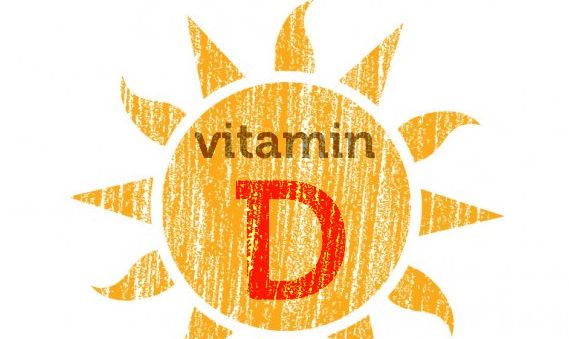Researchers from Boston University School of Medicine (BUSM) have discovered that eating mushrooms containing Vitamin D2 can be as effective at increasing and maintaining vitamin D levels (25-hydroxyvitamin D) as taking supplemental vitamin D2 or vitamin D3.
Vitamin D overview
Vitamin D is crucial for good bone health and muscle strength; adequate amounts help the body maintain bone density reducing the risk of fracture, osteomalacia, osteoarthritis, and osteoporosis. The nutrient also plays an integral role in modulating the immune system to help fight infections like the flu and reduces the risk of many common diseases including cancer, cardiovascular disease, depression, and diabetes.

In the study, 30 healthy adults took the capsules containing 2000 International Units (IU) of vitamin D2, 2000 IU of vitamin D3 or 2000 IU of mushroom powder with vitamin D2 once a day for 12 weeks of winter. Baseline serum 25-hydroxyvitamin D [25(OH)D], a measure to determine a person’s vitamin D status, were not significantly different among the groups. The serum 25(OH)D levels among the three groups gradually increased and plateaued at seven weeks and were maintained for the following five weeks. After 12 weeks of the vitamin D supplements, serum 25(OH)D levels were not statistically significantly different than those who ingested 2000 IU of vitamin D2 in mushroom powder.
What does that mean?
“These results provide evidence that ingesting mushrooms which have been exposed to ultraviolet light and contain vitamin D2, are a good source of vitamin D that can improve the vitamin D status of healthy adults. Furthermore, we found ingesting mushrooms containing vitamin D2 was as effective in raising and maintaining a healthy adult’s vitamin D status as ingesting a supplement that contained either vitamin D2 or vitamin D3,” said Michael F. Holick, Ph.D., MD, the principal investigator of the abstract. The study is available online in the journal Dermato-Endocrinology. “These results confirm other studies that have demonstrated that ingesting vitamin D2 either from fortified orange juice, a supplement or a pharmaceutical formulation were all capable of increasing total circulating 25(OH) D concentrations for at least 3 months, and up to 6 years,” added Holick, the senior author of the study.
Bottom line?
According to Holick and his coauthors ingesting mushrooms containing vitamin D2 can be an effective strategy to enhance a person’s vitamin D status. “The observation that some mushrooms when exposed to UVB light also produce vitamin D3 and vitamin D4 can also provide the consumer with at least two additional vitamin Ds,” he added.
There are more studies confirming the results
In a second poster presentation, the researchers were able to determine how mushrooms make vitamin D2 and found that the process is similar to what occurs in human skin after sun exposure. They were also able to show that mushrooms not only produce vitamin D2 but can produce vitamin D3 and vitamin D4.
“Although it has been previously reported that mushrooms have the ability to produce both vitamin D2 and vitamin D4, through our own research we were able to detect several types of vitamin Ds and provitamin Ds in mushroom samples including vitamin D3 which is also made in human skin,” added Holick.
According to the researchers, these abstracts, as well as the online published study, demonstrate that mushrooms are another good natural food source for vitamin D that can easily be found in ones’ local grocery store.
Source: Boston University of Medicine

